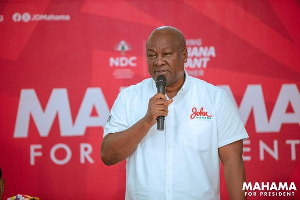 Flagbearer of NDC, John Dramani Mahama
Flagbearer of NDC, John Dramani Mahama
To fully grasp the potential impact of John Mahama's 24-Hour Economy initiative on youth employment in Ghana, it's invaluable to look at successful models implemented across the globe.
These case studies illuminate how around-the-clock economic activities can stimulate job creation, foster innovation, and invigorate local economies.
One prominent example is South Korea's bustling city of Seoul, which has embraced a 24-hour economy through its vibrant nightlife districts. By supporting businesses that operate late into the night, from restaurants and cafes to retail outlets, Seoul has not only generated a significant number of jobs for young people but has also cultivated a unique cultural environment that attracts both locals and tourists.
The city's government actively promotes night-time events and festivals, ensuring that young entrepreneurs have the resources needed to thrive in a competitive landscape.
Similarly, New York City serves as a beacon of the 24-hour economy, where the iconic phrase "the city that never sleeps" rings true. The metropolis offers an array of job opportunities in various sectors that operate around the clock, from the hospitality industry to emergency services and entertainment.
The introduction of policies that support late-night businesses and urban safety initiatives has helped foster an inclusive environment where youth can find employment in diverse fields. This approach not only empowers young workers but also enhances the city's economic resilience.
In contrast, the city of Amsterdam has adopted a more creative approach by promoting a 24-hour cycle that combines culture, leisure, and commerce. The municipality supports late-night cultural activities, such as museum nights and live performances, which not only create jobs for young creatives but also drive foot traffic to local businesses.
By integrating culture into the 24-hour economy, Amsterdam has successfully created a vibrant nightlife that caters to all demographics, showcasing how innovation can intersect with economic growth.
These case studies exemplify the potential benefits of a 24-Hour Economy setup, where careful planning and supportive policies can create an ecosystem rich in opportunities for youth.
By learning from these international examples, Ghana can tailor its strategies to foster a thriving job market, ultimately paving the way for the nation's young people to find meaningful employment and contribute to a more dynamic economy.